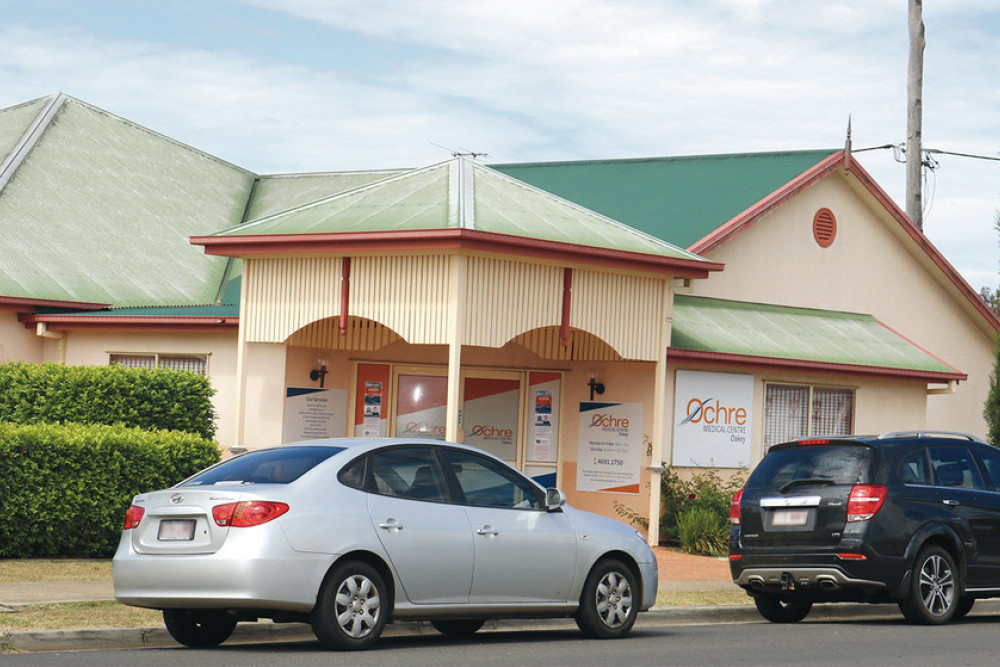Community & Business
1 December, 2022
Doctors want bulk-bill funding expanded
Bulk-billing likely to be wound back in medical practices at Oakey and Kingsthorpe as a White Paper sheds light on the problems facing our doctors.

The Royal Australian College of General Practitioners has doubled down on calls for the government to boost investment in general practice care.
It comes following the release of the General Practice Crisis Summit White Paper, which resulted from the Crisis Summit held in Canberra last month.
Reflecting the discussions at the Summit, the White Paper affirmed that decades of significant underfunding and cost-cutting has left general practice on the brink of collapse, with high up-front costs affecting vulnerable patients’ access to timely care and future doctors discouraged from pursuing a career
in general practice, leading to a growing shortage of GPs.
At the Ochre Medical Centres in Oakey and Kingsthorpe, Practice Manager Tammy Dickeson said hard decisions about bulk-billing will have to be made soon to keep both practices running.
Ms Dickeson said the general public was often unaware of the increasing pressure being placed on GPs to continue to offer bulk-billing which is no longer covered by Medicare.
“Something has to change, until the general public takes a bit of notice,” she said.
“People often don’t realise that GPs are independent contractors - they don’t get paid holidays or annual leave.
“ They pay for their own super, insurance, training.
“That’s all their own expense.”
Ms Dickeson said that the lack of financial incentive and an increased demand for doctors in hospitals had seen a downturn in the number of young doctors choosing to become GPs.
“My pool guy, plumbers and labourers get paid more than GPs do,” she said.
“I was talking to a colleague in Kingaroy.
“Not one junior registrar applied for Kingaroy this year.”
Registrar Kate Middleton, who has left the Oakey and Kingsthorpe practices after 12 months said that you had to love the job to persist with it.
“I’m 32, have a 2-year old and a 5-year old and I’ve done nothing but medicine since I was 18,” she said.
“My husband who’s a carpenter earns a similar amount to me.
“I’ve seen four patients in palliative care this year.
“People in their 30s don’t often have to deal with that level of emotional pain.”
Ms Middleton observed that the system was forcing
GPs across the country to make tough decisions on which patients they could see.
“You carefully select for patients who are less socially disadvantaged, when often they’re the person who needs care the most,” she said.
The Crisis Summit White Paper includes a range of recommendations that were raised by participants.
Some recommendations include an immediate increase to general practice Medicare rebates by at least 20 per cent, a tripling of the bulk-billing incentive, regular indexation of Medicare rebates and other general practice payments by an independent body as well as re-introducing a program of junior doctor placements in general practice.
RACGP President Adjunct Professor Karen Price said the government should act now on reforms to support general practice.
“This White Paper tells us what many GPs have been saying for years – general practice care is on life support and reform is urgently needed,” she said.
Tammy Dickeson says that patient care in general practice constitutes around 8 per cent of federal health care funding, despite the fact that doctors see almost 90 per cent of Australian patients every year.
She said that a lack of funding for general practice could see patients choosing to go directly to hospitals.
“We’re meant to be preventative,” she said.
Health experts across the country widely regard the Medicare Benefits Scheme as being out-of-date.
“In 2022, we have increasing rates of chronic disease, an ageing population, and a much more complex health system, so the funding system simply isn’t fit for purpose,” Adjunct Professor Price said.
“Medicare rebates have not kept pace with the cost of providing high-quality care and without real reform backed by strong investment, the future of general practice care looks bleak.”
Adjunct Professor Price said that the evidence is clear that general practice is in crisis and this is impacting the health and wellbeing of people in communities across Australia, who are struggling to access and afford the care they need.
“Without genuine change, the future of patient care is in jeopardy,” she said.
“More people will struggle to access a GP and bulk billing will continue to collapse, making it harder for people to get the care they need when they need it.”
Adjunct Professor Price said places like Oakey were most at risk.
“This will be felt most acutely by patients in
rural and remote areas, and patients who are financially disadvantaged,” she said.
“We need to ensure equitable access to care, with enough GPs to care for people in every community.”


